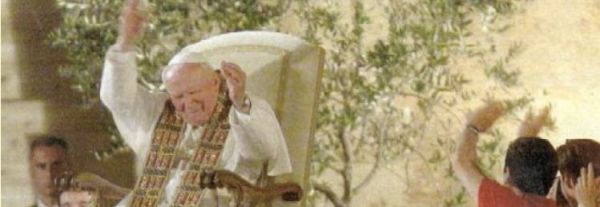Men, eternally elected by the Father in the Beloved Son, find in Christ the Way to their end as adopted children. To Him they unite themselves by becoming His Body. Through Him they ascend to the Father as one "whole" with the things of earth and heaven.
This divine plan finds its historical fulfilment when Jesus establishes the Church, which he first announces and then founds with the sacrifice of his blood and the mandate given to the Apostles to shepherd his flock. It is a historical fact and at the same time a mystery of communion in Christ. For the realisation of this communion of men in Christ eternally willed by God, the commandment that Jesus himself calls 'my commandment' is of essential importance. He calls it 'a new commandment': 'I give you a new commandment: that you love one another. As I have loved you, so also love one another'. "This is my commandment: that you love one another, as I have loved you".
The commandment to love God above all things, and one's neighbour as oneself, has its roots in the Old Testament. But Jesus summarises it, formulates it in sculptural words, gives it a new meaning, as a sign of his followers' belonging to him. "By this all will know that you are my disciples: if you have love for one another". Christ himself is the living model and measure of that love of which he speaks in his commandment: 'As I have loved you,' he says. And indeed he presents himself as the source of that love, as 'the vine', which bears fruit with that love in his disciples, who are 'the branches' of it: 'I am the vine, you are the branches. He who abides in me, and I in him, bears much fruit, for without me you can do nothing'. Hence the exhortation: 'Abide in my love'. The community of disciples, rooted in that love with which Christ himself loved them, is the Church, the Body of Christ, the one vine of which we are the branches. It is the Church-communion, the Church-community of love, the Church-mystery of love. The members of this community love Christ and, in Him, love one another. But it is a love that, deriving from the love with which Jesus himself loved them, is linked back to the source of the love of Christ Man-God, namely the Trinitarian communion. From it it draws its entire nature, its supernatural qualification, and tends to it as to its own definitive fulfilment.
[Pope John Paul II, General Audience, 15 January 1992]












